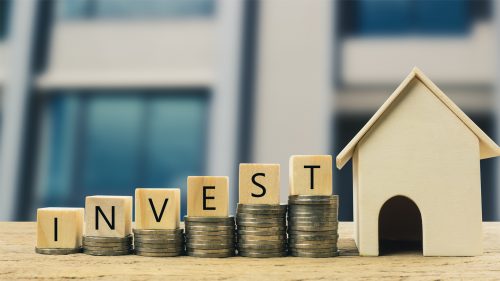By Lindsay Reddy, Realtor
 Andy Dean/stock.adobe.com
Andy Dean/stock.adobe.com
Did you know that 90% of all millionaires became so through owning real estate? The idea that you can buy an investment property to build wealth sounds awesome, but there are some things to keep in mind when starting out.
You need to make sure you are okay being a landlord. When things break, flood, drip or fall, you’ll be the one your tenants call. Do you have the ability to handle repairs and maintenance yourself? Or will you hire a contractor? Also consider the option of hiring a property manager. You won’t be the one receiving the 1am phone call that the furnace is not working, but that comes with a cost. Be honest with yourself about what it really takes and map out the pros and cons well in advance.
 Tom Bayer/stock.adobe.com
Tom Bayer/stock.adobe.com
MONTHLY INCOME IS AWESOME, RIGHT? If your property is in great shape and the tenant is reliable, those monthly checks in the mailbox or deposits into a bank account can be life changing. The downside, tenants can be difficult and tend to not care for your home as if it’s their own. Remember to factor in the costs of normal wear and tear in addition to potential damage when a tenant moves out. At the least, carpets will need cleaning and walls painted, but also budget for other updates and repairs. Also be sure to take vacancy into consideration when a lease is coming to an end. If the property goes unrented for some time, you are still required to make the monthly mortgage payments.
WATCH OUT FOR RENTAL RESTRICTIONS. Companies like Airbnb and VRBO are hugely popular, so much so that many areas have passed short-term rental restrictions. You will want to keep that in mind when thinking about where to buy property. For example, a home on a recreational lake could be highly profitable as a short-term rental, but be sure to check with the city or county for restrictions. If you are considering investing in a property with a Homeowners Association (HOA), keep in mind some HOAs do have rental limits or restrictions.
indysystem/stock.adobe.com
 SECURING A DOWN PAYMENT. To purchase an investment property, you are going to need a large down payment. Private Mortgage Insurance (PMI) is not available on rentals and, because PMI is not available, you’ll need at least 20% down. If you do not have the cash or credit for traditional financing, there are other creative options such as seller financing, bringing in an investment partner, taking out a home equity line of credit or a hard money loan.
SECURING A DOWN PAYMENT. To purchase an investment property, you are going to need a large down payment. Private Mortgage Insurance (PMI) is not available on rentals and, because PMI is not available, you’ll need at least 20% down. If you do not have the cash or credit for traditional financing, there are other creative options such as seller financing, bringing in an investment partner, taking out a home equity line of credit or a hard money loan.
It can be extremely beneficial to work with the right real estate agent and mortgage broker who understand current market conditions and your individual criteria. A licensed Realtor® who has a passion for investment properties can be an vital tool for the first time (or seasoned) investor. Not all investment properties are found on the Multiple Listing Service (MLS) and it can take some extra time, effort, creative and non-traditional tactics to even find a property.
Starting to invest in real estate is an exciting journey that you do not want to tackle alone. Be sure to align yourself with an experienced Realtor®, mortgage broker, attorney and/or tax professional from the start.
Lindsay Reddy, Realtor with The Property Geeks, can be reached at 651-895-4284 or lindsay@thepropertygeeks.com.










